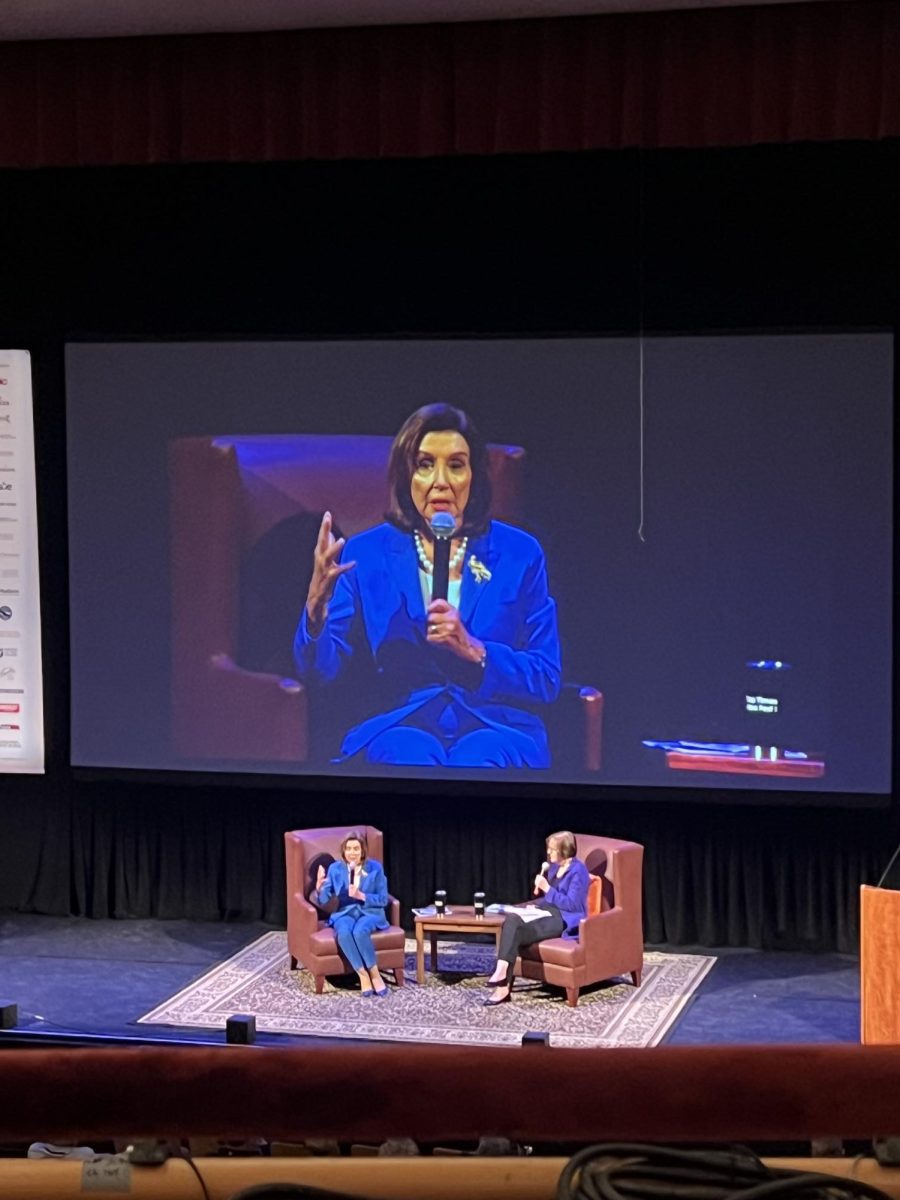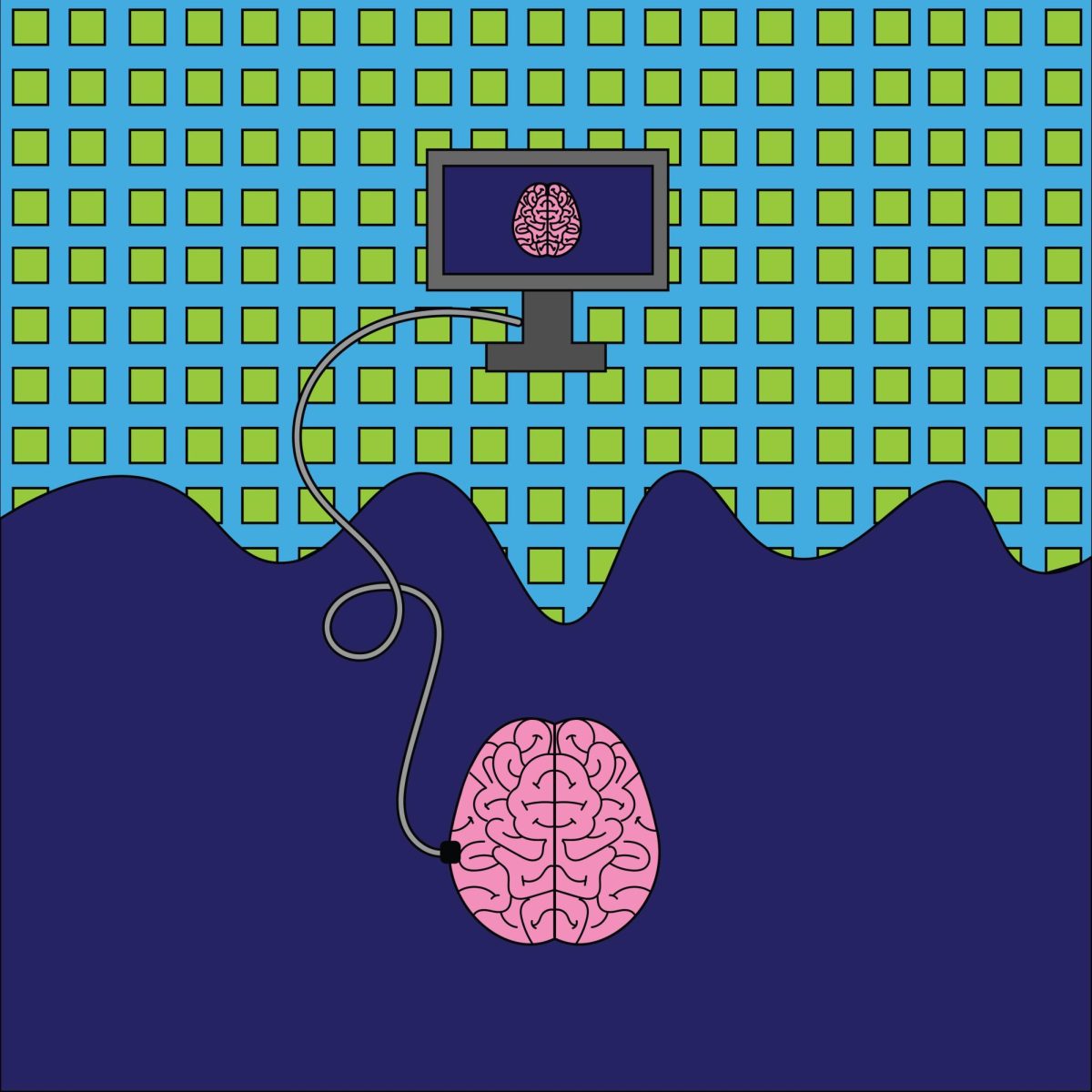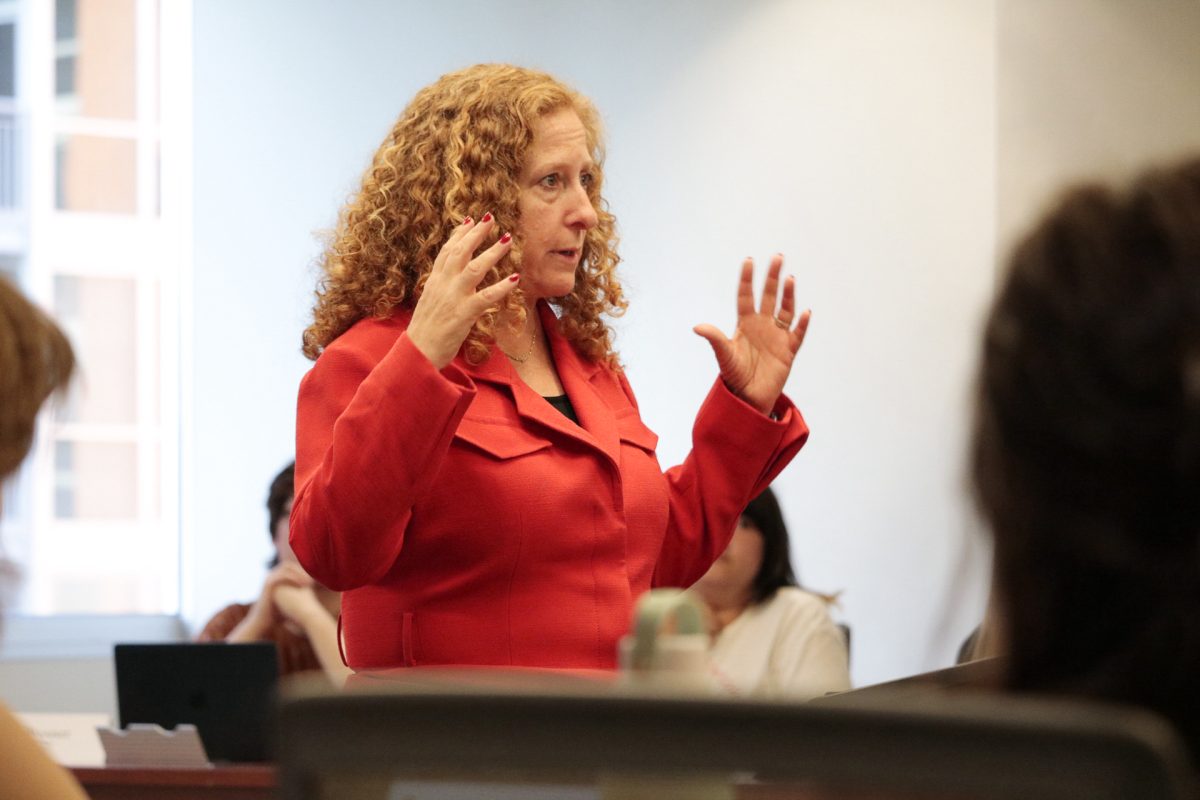The term "apathetic" means not interested or not concerned, indifferent and unresponsive. Many people across the nation have tied one group of people to the term, though — it seems the view of many candidates and the general public is that the most apathetic portion of potential voters are college students.
Despite the recent increase in the 18-to-29-year-old voting demographic in past elections — including a record number of voters in that range in 2004 — the overwhelming view nationwide seems to indicate most people think college students just aren't involved in the election process, and more specifically, with actually voting.
No matter how true, those stereotypes have to have come from somewhere. Whether from anecdotal stories of uninterested youths or from concrete numbers, the negative view of the participation of youths, and particularly of college students, may just hold water. The overall turnout for the 2004 election was about 60 percent, while only 51 percent of the 18-to-29-year-old demographic made it to the polls.
Everyone knows students have other things going on, right? Students, like those at University of Wisconsin, have tests to take, papers to write and friends to hang out with. Students have a plethora of other obligations to worry about and some don't have time to be concerned with the upcoming election.
Students can use those types of statements as excuses, but in reality, some believe that's all they are. Sure, voting takes a little time, but according to UW Interim Dean of Students Lori Berquam, it is necessary.
"This is your civic responsibility, your civic duty," Berquam said. "Students will make the difference in this election on Tuesday if they turn out like I know they can."
Though Berquam spoke passionately about student involvement, her statements about the importance of student participation during the election are right on: The student vote has the potential to turn the election one way or the other.
Impact of the student vote
U.S. Rep. Tammy Baldwin, D-Wis., according to some, owes her congressional victories to students.
First elected in 1998, Baldwin has received strong support from UW students. According to UW alumnus and Madison City Council President Austin King, the phenomenon was coined "Youthquake" by many media outlets.
"In 1998, most student wards had a 90 percent turnout, which was quite remarkable," King said. "The turnout was so high that year — they ran out of ballots at a bunch of the wards — so people were bringing pizza to the students waiting in line to vote to ensure they would stay."
King said there is no secret why Baldwin took office — it was because of student turnout, adding that Baldwin treats students well because she knows they are a huge reason why she's a congresswoman. Stephanie Biese, chair of Students for Tammy Baldwin, echoed these thoughts.
"I don't think I've met anyone to [whom] the student vote is more important," Biese said. "She started on campus, getting involved in local politics at first. She expresses to me all the time the importance of the student vote. In 1998, she got to the students, and the student vote is what won the election. She'll never forget how important that was to her."
The impact of the student vote was not limited to the 1998 congressional election though, as the entire state of Wisconsin was impacted by a large student turnout in Madison.
Democratic presidential candidate John Kerry took the state of Wisconsin by about 11,000 votes over the incumbent, George W. Bush. And part of that difference came from Madison, where Kerry took the area by about 11,000 votes.
King credited the difference to the active student participation in the voting process.
"The reality is that the student vote is always an unknown quantity," he said. "But when they turn out in large numbers, they make the difference."
The key thing, however, is informing students about the candidates, the issues and the other voting essentials like registration and polling places.
Getting the information out there
The anticipated student turnout for the 2006 election is high, which is a result of important referendums coupled with interest in the gubernatorial and congressional races, as well as the active participation of student organizations in spreading the word about the Nov. 7 race.
Berquam said she is proud of the participation put forth by groups like UW College Republicans, College Democrats of Madison, Students for a Fair Wisconsin and other students who are affiliated with political campaigns.
"I have seen the student involvement, and I have been incredibly impressed with the activity of the student organizations on campus," she said. "I'm really impressed with how they take a look at the issues and tell students how they will be specifically impacted by many of them."
Of course there are the classic tools for getting the word out to students — including chalking, mass e-mails and dorm mailers — but student organizations have not limited themselves to just those tactics.
Eli Lewien, chair of College Democrats, explained his group's efforts.
"Our goal is to let students know the issues of the candidates," Lewien said. "We've held forums where election issues were discussed and we've invited several candidates to come and speak to students and tell them directly where they stand on issues."
Biese said her group held a debate on campus between the congressional incumbent Baldwin and her Republican challenger Dave Magnum. She added that Baldwin has met with a number of student organizations and plans to be on campus talking with students today and Tuesday.
Mike Hahn, chair of Students for Dave Magnum, said his group has also gone beyond the typical "campus thing," pointing to the fact that the Magnum campaign has done a lot of work to make personal one-on-one contacts as well.
According to King, the above-and-beyond contact from candidates is what students are looking for from the politicians.
"There's a lot of candidates who come to campus and take the 'Rock the Vote' stance," King said. "But if you quiz the average college student, they're probably more aware of the issues than the average voter. I don't think candidates are always aware of how seriously students take the opportunity to vote."
In particular, college freshmen and sophomores who plan to vote are targeted with information, King said, because it will be their first time voting.
Information about polling places has been posted on the UW website, and Berquam said she will be sending a mass e-mail to ensure students have every way of knowing how to register and where to vote.
All this serious political activity on campus can be seen as nothing but encouraging, but are students responding, and are they going to take the time to vote?
Student Response
For this election, everyone in the know seems optimistic about students at the polls. Biese said the student response to the issues and the campaigns in general has been outstanding.
"I've been really impressed with the campus," she said. "When I was here and there weren't many students around over the summer, I was kind of discouraged. But the student response with everyone back has been impressive, and I'm really encouraged and hopeful about the potential for this election."
According to Hahn, in the typical mid-term election, this optimism would largely be due to civic passion for the gubernatorial race.
"As far as turnout goes in general, it usually depends on the top of the ticket," Hahn said. "However, this year the referendums may be what really increases voter turnout. There's a lot of strong opinions on campus and across the state about the death penalty and the marriage amendment."
The advisory death penalty referendum asks voters whether they would like capital punishment to be reinstated for cases of first-degree homicide supported by DNA evidence, while the gay-marriage referendum would amend Wisconsin's Constitution to ban civil unions and same-sex marriage.
A close gubernatorial race, when coupled with passion about the referendums, especially the civil-union referendum, equates to hope for a record turnout from students for this year's mid-term election.
Lewien said the great expectations have come not because these are simply important issues, but because they matter to students.
"We'd like to see a record student turnout for these elections," Lewien said. "Students will come out and vote because they truly care about the issues. Whether it be about tuition, stem-cell research, the death penalty or civil unions, in some way students are affected or are simply passionate about one or more of these issues."
King also predicted that student turnout will be "through the roof" and will likely turn the results, depending on how many actually vote one way or the other.
"If [UW students'] turnout is on top of 80 percent at the student wards, that could make the difference statewide," he said.
When the results come in Tuesday, the state may see another "Youthquake," but it's up to the UW students to make the difference. There's no doubt that the passion surrounding this election and the issues involved give UW students the opportunity to once again cast a few stones at the nationwide perception of collegians as apathetic.
"This could potentially be the most critical vote in the history of our state," Berquam said. "The future of our state depends on the vote and it's in the hands of our students. Let's have the student voice be heard. The time is now. I'm really counting on our students."













